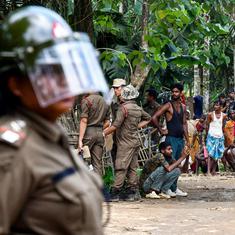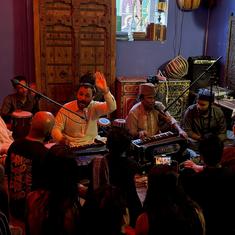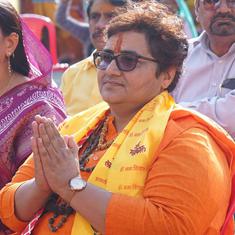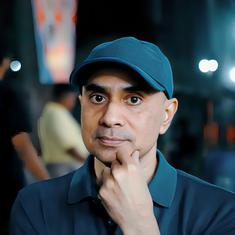The council members sat self-importantly on the brick platform to listen to the case that Baba was going to make. Sadashiv Pandit, the school principal, was present. The villagers packed the ground in front. There were more women than usual, and, of course, girls and boys, all agog, sweaty as much from the anticipation of the drama as from the heat of the sun-soaked air. Bhausaheb asked Baba to begin.
“Dear councillors, brothers, and sisters! If we believe that Saraswati, a woman whom we worship as a goddess, is the repository of knowledge, then every girl has a right to be the recipient of her benediction. In addition, we must heed the teachings of our own great heroes – Maharishi Karve and Mahatma Phule. May I propose that the Ratnagiri Vidya Mandir be allowed to admit any girl who wants to attend and that the village council extend the permission given to my daughters to attend the school to all others?”
Sadashiv Pandit supported Baba. “Madhav Rao’s proposal merits your consideration. After the councillors have spoken, may I ask what our mothers and wives sitting here think?” Bhausaheb said.
The angel of Baba’s hopes rose every time a councillor stood up to speak and got thrashed to the ground with their objections to the proposal. Then many of the mothers of the girls, surprisingly, raised their hands to speak. Malati was giddy with excitement. This could be a miracle moment – Chamatkaar! Chamatkaar! Chamatkaar! She intoned! The women, of course, will speak out for girls, she was sure.
But alas, no. They were given the rare chance to speak, and one by one, the women shyly and almost inaudibly said, “Amahala he nako! We don’t want that. We are content with things as they are. That is our fate, our duty.”
A crestfallen Baba turned in desperation to the oldest matriarch of the village – Chandrabai. “At least you, who are as wise as Rajmata Jijabai, Shivaji Maharaj’s mother, must want better for your granddaughters and can speak your mind without fear or favour, unlike their diffident mothers,” he said.
Chandrabai got up shakily from her muda with the help of her stick – one as bent as her back – and walked unsteadily towards the centre of the assembly. Malati had never before heard a voice tremble like the banyan leaves in the wind, and yet ring out so authoritatively. The villagers listened with rapt attention. The daggers of her two front teeth flashed in the dark hollow of her otherwise toothless mouth. Her tongue deftly slipped in and out. Her jaws moved from side to side and Malati was reminded of their cow Vaidehi, forever chewing cud.
“Madhav Rao, this has been ordained for us women since times immemorial. Who are you, Lord Sri Krishna of Bhagavad Gita come to uplift us? You cannot change the laws of our Hindu dharma like this. Even the Gora sahebs could not do that. We are better off in the comfort of our homes being wives and mothers. We are the medium of vanshvriddhi, ensuring the continuity of the Indian race – a role only women are privileged to perform. We leave the heroism of purushartha—study and work outside the home and breadwinning – to the boys and men of our family. I advise you also to follow this dharma with your own daughters. And beget sons, if you want your progeny to do heroic deeds,” she taunted.
Baba, leading the battle for girls going to school, was fighting so far with yukti. When he saw that he had lost that battle, there was no holding him back.
“It is not the spears of betrayal by the men and fathers – which I can bear – it is the mace of perversity and surrender of the women present, who did not stand up for their own kind that has clobbered me into defeat: Maa Saheb, you let down all our daughters by upholding and perpetuating this injustice. You are certainly no Jijabai, alas!”
Chandrabai gave him a sheepish look – the only consolation for Malati. Bhausaheb smiled and twirled his already upturned moustache in triumph. Bhika wagged his thumb derisively at Malati. Baba immediately left the meeting with the girls, angry and hurt.
After this shocking defeat for Baba there was a continuous churning in everyone’s mind. Ayee, strangely, seemed convinced that her younger daughters must continue to look beyond the threshold and courtyard of the home. She acknowledged that the fate of wives and mothers is not easy, nor do all women get a husband like hers – a green coconut, hard outside, soft and pulpy inside – a rarity.
Ayee was nevertheless shaken by the panchayat showdown and wondered aloud, whether, in a world where girls were pursuing their age-old destinies, their two daughters would remain unmarried.

Excerpted with permission from Swallowing the Sun: A Novel, Lakshmi Murdeshwar Puri, Aleph Book Company.










